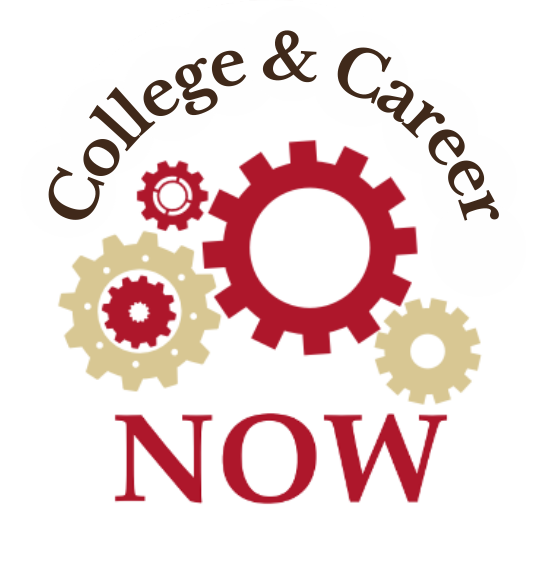
Over the Rainbow: A Career Development Group for LGBTQ+ Teens
By Isabella M. Herrera and Anita A. Neuer Colburn
LGBTQ+ students face many barriers, often including school violence, harassment, and bullying (GLSEN, 2019; Rockenbach et al., 2017; Strear, 2017; Zamani-Gallaher & Choudhuri, 2016). Continuous threats to the safety of LGBTQ+ people (Baker & Lucas, 2017) make it common for members of the community to continuously need to assess how much of their identity they may disclose (Rockenbach et al., 2017), a challenge that does not diminish when a person enters the workplace (Zamani-Gallaher & Choudhuri, 2016). Despite educators’ push to normalize disclosing pronouns and using inclusive language (GLSEN, 2019; Rankin et al., 2019; Simons et al., 2018), a lack of out role models in schools also places a distinct challenge on LGBTQ+ students’ comfort on campus (Cheng et al., 2017). These situations contribute to a climate of marginalization and underrepresentation for these students (Beck, 2017; McMahon et al., 2017; Rankin et al., 2019; Zamani-Gallaher & Choudhuri, 2016), directly impacting how comfortable – and capable – they feel about making comprehensive career decisions (Chen & Keats, 2016).
It is part of an educator’s responsibility to be mindful of and present for their students’ needs. Understanding these barriers to positive identity development allows educators to support LGBTQ+ youth and further understand the diversity in how to serve them (Singh & Kosciw, 2018). Access to clear career guidance also seems to be lacking, since almost 70% of students (Owen et al., 2020) reported needing more career information, in addition to reminders of opportunities and deadlines, from school counselors (Gu et al., 2019). Given these distinct needs, and with a desire to help normalize identity exploration and career anxiety (Falco & Shaheed, 2021) we propose Over the Rainbow (OTR).
Career Group for LGBTQ+ High Schoolers
Pyle and Hayden (2015) suggested using a group environment to leverage career counseling goals and information. We propose extending their model of Group Career Counseling to amplify LGBTQ+ teens’ voices and guide their unique career decision-making processes. The OTR career readiness group would use its 90-minute sessions to highlight both LGBTQ+ specific growth and career decision making. We expect that this series of workshops will help students feel seen in their diverse identities, and that the group could serve as an avenue for members to find support, build communities, and see themselves represented in a range of jobs.
The proposed group includes six sessions, would be led by school counselors, and features guest speakers who identify as part of the LGBTQ+ community and are familiar with career and college readiness topics. To increase mutuality and effectiveness, we recommend the groups include eight or fewer members and be composed of juniors and seniors who identify as a part of the community. Although this may be a challenge for participants who are not out, we hope that the support within the space outweighs the risks of students outing themselves to others who also identify as LGBTQ+. Specific consideration should also be given to transgender and non-binary identifying people. These identities are often silenced and made to feel invisible (Rockenbach et al., 2017) when grouped with other members of the community (Beauregard et al., 2016; Tebbe & Moradi, 2016). Group facilitators should highlight the differences between sexual orientation and gender identity, as well as how the workplace environment may impact these.
The goal of OTR is to help minimize the weight these diverse identities are forced to carry. Gender norms that have been taught since youth are often internalized when students are faced with making decisions about their future (Rockenbach et al., 2017). It is up to school counselors and practitioners with access to these young minds to help mold their bravery and encourage their growth. With access to a community that supports their exploration, students will begin to feel more confident in themselves and more equipped to plan for their future. The group will also respond to the call for more career information (Owen et al., 2020) and LGBTQ+ role models (Cheng et al., 2017) for teens. It is our hope that OTR will begin to pave the way for long-lasting change in the school climate for LGBTQ+ students, helping design a more inclusive future.
References
Baker, S. J., & Lucas, K. (2017). Is it safe to bring myself to work? Understanding LGBTQ experiences of workplace dignity. Canadian Journal of Administrative Sciences, 34(2), 133-148. https://doi.org/10.1002/CJAS.1439
Beauregard, T. A., Arevshatian, L., Booth, J. E., & Whittle, S. (2018). Listen carefully: transgender voices in the workplace. The International Journal of Human Resource Management, 29(5),857-884. https://doi.org/10.1080/09585192.2016.1234503
Beck, M. J. (2017). Exploring the experiences of school counselor-administrator teams in their work with LGBT students: A phenomenological study [Doctoral dissertation,University of Iowa]. Iowa Research Online. http://ir.uiowa.edu/cgi/viewcontent.cgi?article=6894&context=etd
Chen, C.P., & Keats, A. (2016) Career development and counselling needs of LGBTQ high school students. British Journal of Guidance & Counselling, 44(5), 576-588. https://doi.org/10.1080/03069885.2016.1187709
Cheng, J., Klann, E. M., Zounlome, N. O. O., & Chung, Y. B. (2017). Promoting affirmative career development and work environment for LGBT individuals. In K. Maree (Ed.), Psychology of Career Adaptability, Employability and Resilience (pp. 265-282). Springer. https://doi.org/10.1007/978-3-319-66954-0_16
Falco, L. D., & Shaheed, C. (2021). Putting theory into practice: A conceptual framework for career group counseling in school settings. The Journal for Specialists in Group Work, 46(1), 6-19. https://doi.org/10.1080/01933922.2020.1867678
GLSEN (2019). Supporting safe and healthy schools for lesbian, gay, bisexual, transgender, and queer students: A national survey of school counselors, social workers, and psychologists. GLSEN. www.glsen.org/research
Gu, X., Tang, M., Chen, Shi., & Montgomery, M.L. (2019). Effects of a career course on Chinese high school students’ career decision-making readiness. The Career Development Quarterly, 68(3), 222-237. https://doi.org/10.1002/cdq.12233
Pyle, K. R., & Hayden, S. C. W. (2015). Group career counseling: Practices and Principles (2nd ed). National Career Development Association.
Rockenbach, A.N., Lo, M.A., & Mayhew, M.J. (2017). How LGBT college students perceive and engage the campus religious and spiritual climate. Journal of Homosexuality, 64(4), 488-508. https://10.1080/00918369.2016.1191239
Simmons, J.D., Beck, M.J., Asplund, N.R.,Chan, C.D., & Byrd, R. (2018). Advocacy for gender minority students: Recommendations for school counselors. Sex Education, 18(4), 464-478. https://doi.org/10.1080/14681811.2017.1421531
Singh, A.A., & Kosciw, J.G. (2018). School counselors transforming schools for LGBTQ students. Professional School Counseling, 20(1), 1-4. https://www.jstor.org/stable/90014849
Strear, M. M. (2017). Forecasting and inclusive future: School counseling strategies to deconstruct educational heteronormativity. Professional School Counseling, 20(1a), 47-56. https://doi.org/10.5330/1096-2409-20.1a.47
Tebbe, E. A., & Moradi, B. (2016). Suicide risk in trans populations: An application of minority stress theory. Journal of Counseling Psychology, 63(5), 520-533. https://doi.org/10.1037/cou0000152
Owen, L., Poynton, T.A., Moore, R. (2020). Student preferences for college and career information. Journal of College Access, 5(1). https://scholarworks.wmich.edu/jca/vol5/iss1/7
McMahon, G., Griffith, C., Mariani, M., Zyromski, B. (2017). School counseling intervention research on college readiness, college access, and postsecondary success: A 10-year content analysis of peer reviewed research. Journal of College Access, 3(2). https://scholarworks.wmich.edu/jca/vol3/iss2/3
Rankin, S., Garvey, J.C., & Duran, A. (2019). A retrospective of LGBT issues on the US college campuses: 1990-2020. International Sociology, 34(4), 435-454. https://10.1177/0268580919851429
Zamani-Gallaher, E.M., & Choudhuri, D.D. (2016). Tracing LGBTQ community college students’ experiences. New Direction for Community Colleges, 2016(174), 47-63. https://doi.org/10.1002/cc.20202
